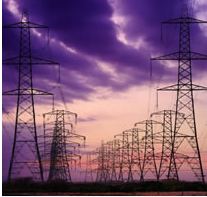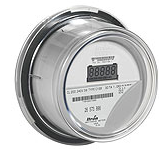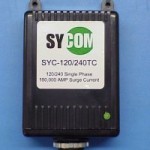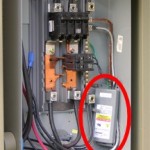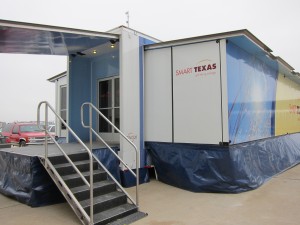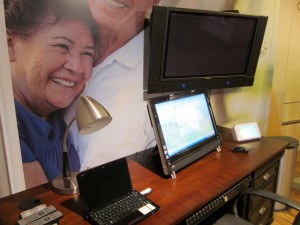Note from the author: The story below served us well for many years, but in September 2017 this Guide to Electricity was completely updated. Please visit the updated version here.
More than anything, Dave Lieber’s Watchdog Nation wants to save you money. The easiest way to save in Texas, I believe, is to shop smart for electricity.
In the first years after deregulation, I was a confused shopper because power always came from a monopoly. Suddenly, dozens of new electricity companies started competing.
Not understanding the system, I overpaid – but I quickly grew tired of that. I decided to educate myself. Eventually, I figured out a system. My Watchdog Nation Guide to Electricity Savings is built on the idea that companies should be judged two ways – by lowest rate and by company reputation. When the stars align, the right company is obvious. (Note: This doesn’t apply to customers in mandatory electricity co-ops or municipal-owned utilities.)
I’ve shared this with readers of my column in the Fort Worth Star-Telegram and then again in my current column as The Watchdog of The Dallas Morning News. I’ve also shared paper copies of this strategy with at least 100,000 Texans, audiences I’ve spoken to in recent years.
Shopping for electricity is still a role of dice, but my ideas eliminate a lot of risk. Now that most electricity companies have figured out a variety of surprising and often unfair ways to collect extra fees from you, this reputational shopping, as I call it, is more important than ever.

Thousands of Texans have used this Watchdog Nation report by Dave Lieber as the basis for a switch in electric companies – saving thousands of dollars for consumers.
– – – – – – – – – – – – – – – – – – – – – – – –
More Watchdog Nation News:
Watchdog Nation Partners with Mike Holmes
America meets Watchdog Nation/Listen to Fun Radio Interview
Watchdog Nation Debuts New e-Book and Multi-CD Audio Book
– – – – – – – – – – – – – – – – – – – – – – – –
Here’s The Dallas Morning News Watchdog’s gift to you – The 2015 Guide to Picking the Best Electricity Provider
1. TXU no longer rules. Get over the idea that TXU Energy, most likely your original provider, is the only company that can offer solid, uninterrupted service. And don’t believe the fallacy that TXU customers get serviced first when power goes out. Oncor Electric Delivery is responsible for maintaining the transmission system. Everybody, TXU and its many competitors, uses Oncor to handle repairs in our region.
2. Switching is good. Act under the assumption that you should switch companies every year. The market is constantly changing.
3. You can find better deals and save hundreds of dollars a year with this one decision. Electricity is measured by kWh, or kilowatts-hour. If you pay 8 cents a kWh instead of 12 cents, your monthly electric bill could drop $100 or more.
4. Know your current contract terms. Before you shop, know what you already have. (Surprisingly, most people don’t.) What’s your kWh rate? Check your electric bill. It may be higher than what’s available elsewhere. (In Texas, last week it ranged from 4.9 cents to as high as 13.5 cents.) Also call your provider and ask for the date when your contract expires. Find out whether your rate is fixed or variable. Start planning a possible switch a month before a contract expires.
5. Decide whether you want to play it safe or be a gambler. Do you want to lock in a fixed rate that you can afford for a longer period of time? Or are you willing to take a low price now and understand that a variable or indexed rate could spike depending on market conditions?
6. Conduct a thorough search. Go to this Web site: www.powertochoose.org. (If you don’t have an Internet connection, visit your public library and ask a librarian for help. Or ask a friend or relative to help you.) Enter your zip code and start searching. When you find an offer you like, make sure to go to the company’s own website. Sometimes the company’s price might be cheaper than what’s shown on powertochoose.org.
7. Pick your poison. Deeper in the website you see a search box along the left side. Under “Plan Type” a recommended pick is fixed, but you can also choose a variable or an indexed market rate. (The Watchdog likes fixed since market conditions can grow volatile.) Under “Price,” type in a range from 4 cents to 12 cents. That’s a good spread. Pick a contract length. Fill out the other boxes. Then hit “Refresh Results” on the bottom. Keep trying different combinations to see what the prices are that day. They change often.
8. Study the results. For the selection cited above, several dozen companies recently offered rates in that range. Remember that the lowest rates could come from a company with a poor reputation, but more on that later. Contract lengths varied from one to 36 months. Each service plan comes with links to “Terms of Service,” “Facts Sheet,” “Signup” and “Special Terms.” When you click on these, you learn the nitty-gritty details. Many companies have minimums about the amount of power you must use, or you pay more. Carefully look for language about other fees.
9. Check out your favorite. After you find a company with a rate and contract length you like, learn more about them. One way is to do an Internet search of the company. Place the company’s name in various searches besides these search terms: scam, rip-off and complaints. If the company has a troubled history, find out before you sign up. If only a few results come up from disgruntled customers, don’t worry. But if there are several dozen, continue with a quick search of the company’s Better Business Bureau record. And then, most important, return to powertochoose.org and below the name of the company, you’ll see “Complaint Scorecard” and “Complaint History.” Click on those links and learn more about the company.
10. Read the contract. Otherwise, you’ll get blindsided when hidden fees and charges emerge later. Look for termination fees. Contracts must be printed in letters big enough to read.
Final switch tips. When you make your final selection, don’t call your current electricity provider to cancel. Sign up with the new company only. Try to sign up at least 5 to 7 days before your plan expires so the overlap between the two billing cycles is negligible. Some people switch too late and pay higher prices during the transition. If you have a smart meter, the state rule is you must be switched within 48 hours. But 5-7 days is safer.
Remember, there’s no loss of power when you switch. It happens, and you don’t even know it.
Until the bill comes.
# # #

Still here? Visit Dave Lieber’s other fun websites:
Personal: YankeeCowboy.com
Hipster site: DaveLieber.org
New book site: BadDadBook.com








 \
\



